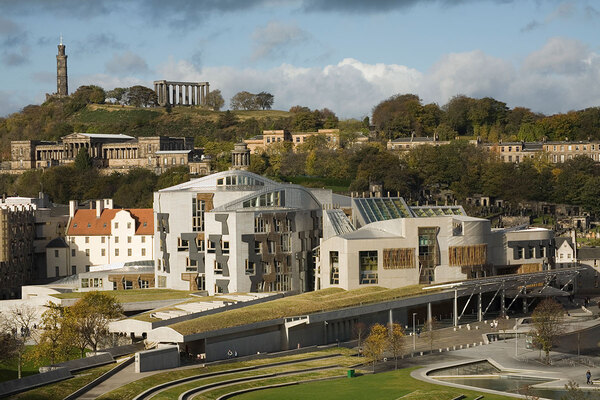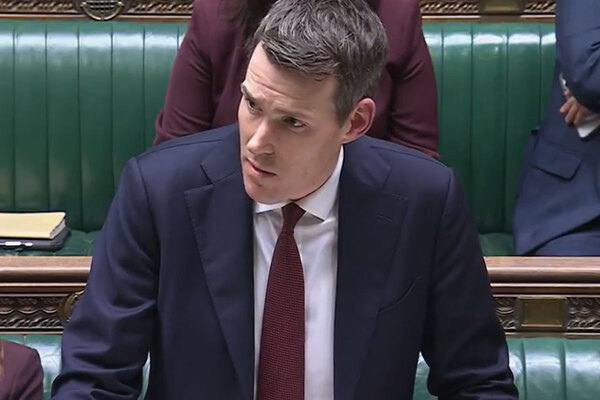No rent restrictions for social landlords in Scotland next year
The Scottish government is not planning to impose any rent restrictions on social landlords for the next financial year.

An agreement reached between the government and the Scottish Federation of Housing Associations (SFHA) today means that its members will continue to keep rents affordable but will not face a rent freeze or any restriction from 1 April 2023.
The news comes after Scotland introduced emergency legislation that brought in a rent freeze for residential tenancies until at least the end of March 2023 in response to the cost of living crisis. Social landlords in Scotland had been concerned that a freeze might be extended beyond March 2023, when rents would be set for the forthcoming year.
The Cost of Living (Tenant Protection) Bill was passed by the Scottish government in October and included an eviction ban.
The SFHA had urged the government to rethink the rent freeze for the sector, arguing that the intervention would “jeopardise” housebuilding.
According to the SFHA, the certainty provided by the agreement today will allow its members to plan new build developments and improvement programmes for existing homes as well as continue delivering support services for tenants.
It said it also protects the active and direct role of tenants in rent consultation with their landlord.
Unlike in England, where there is a limit of consumer price inflation plus an additional 1% – although not this year with the incoming rent cap of 7% – in Scotland the government does not have any control over rents and there are no limits. But legislation already requires social landlords to consult with tenants about rent increases and requires social landlords to keep in mind what is affordable for their tenants when suggesting a rent increase.
However, in April 2022 average housing association rents increased by 3.3%, compared to consumer price inflation of 9%.
Earlier this year it emerged that several councils in Scotland decided to keep rents low or freeze them altogether for 2022-23 in light of the cost of living crisis.
Data shared with the SFHA by individual housing associations on their plans has indicated that the average rent increase will be around 6.1% across the country in 2023-24.
However, the exact level of rent increase will vary between landlords.
The SFHA estimates that a 6.1% rent increase will equate to an £80m reduction in income for housing associations in Scotland.
A statement published by the SFHA today, supported by the Scottish government, pledged to protect tenants and continue to invest in homes.
It said that housing associations must work on the basis of 30-year business plans and any changes to rents in a single year are “therefore compounded and have a significant long-term impact across the plan”.
“Around 70% of social housing tenants have their rents covered by social security, paid in part or fully by the UK government, and the Scottish Housing Regulator has estimated that those tenants who do pay full rent would save around £3 per week from a rent freeze,” the statement said.
It said that a one-year rent freeze would remove more than £170m from the social housing sector, which could otherwise be invested in new homes, maintenance work and support for tenants.
Sally Thomas, chief executive of the SFHA, said: “Housing associations are committed to supporting tenants through the cost of living crisis, and work tirelessly every day to reduce poverty across Scotland.
“Today’s announcement will mean the sector can continue its work to set rents in an open and transparent way, involving tenants in decisions for the upcoming year and allowing the sector’s essential work to continue.”
She added that any restriction “would have resulted in reductions in vital support services, with little difference to individual tenants’ incomes”.
“We are pleased that the Scottish government has worked closely with the sector, to understand the evidence and avoid unintended consequences of this legislation, and to find a collaborative way forward.
“Investing in good-quality, warm homes for social rent is crucial to tackling poverty in Scotland and protecting new and existing tenants from the increasing cost of living,” Ms Thomas said.
It also emerged today that councils have committed to keeping rental and fee increases to an average of less than £5 a week across the country in 2023-24 in recognition of the cost of living crisis.
Maureen Chalmers, community well-being spokesperson for the Convention of Scottish Local Authorities (COSLA) said the news was good for council tenants.
She said: “Council leaders recognise the severe financial crisis many of our tenants and households are facing and have acted decisively to provide some assurance, despite the financial challenges Scotland’s councils face.
“Leaders recognise that the very high rates of inflation around the costs of heating and food disproportionately affect those on lower incomes and are acutely aware of the proportion of individuals’ income that is spent on accommodation in the rented sector and that this can vary considerably.”
She said council leaders will seek to reach an agreement with tenants on any rent increase for the next financial year.
Sign up for our Scotland newsletter
Already have an account? Click here to manage your newsletters











